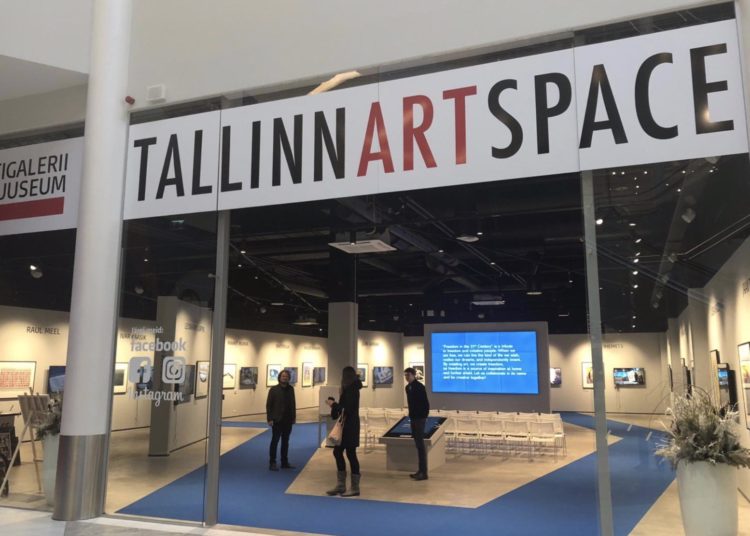Turkey under the current Islamist government and its neo-nationalist cronies has been undermining the NATO alliance and has become a major threat for its long-time allies, the audience was told during a recent event in the Estonian capital of Tallinn.
“Turkey used to be a solid ally in shoring up the security of the alliance with resources, manpower and military capabilities. Not anymore, with the government of President Recep Tayyip Erdoğan pivoting towards Iran and Russia,” said Abdullah Bozkurt, director of the Stockholm-based Nordic Research and Monitoring Network.
The event, held at the Tallinn Art Space, featured a debate on Turkey, where the government crackdown on free speech including critical artistic expression has resulted in the imprisonment of 211 journalists, including the nation’s top authors and writers. In addition to that 168 journalists are wanted for arrest by authorities on trumped-up charges of terrorism.
“The targeting of journalists is by no means random,”’ Bozkurt said, stressing that court reporters in particular who have written extensively on corruption in the government and on the Erdoğan government’s arming and funding of radical jihadists in Syria were targeted in this unprecedented persecution.
The fact that 150 generals, some 50 percent of all generals in the Turkish military, which is NATO’s second largest army in terms of manpower, were dismissed on totally fabricated charges and jailed on dubious evidence of terrorism and coup plotting confirms that the current government is pursuing a different path for Turkey, Bozkurt explained. He noted that the government purged some 70 percent of all fighter pilots from the air force and now has difficulty in maintaining air patrol operations.

“In the past, we used to see Turkish F-16 fighter pilots join in patrolling Estonian airspace in the Baltic. Now Turkey cannot even maintain patrols at sufficient levels in its own airspace and had to ask Pakistan to provide trainers for F-16s, a request that was nixed by the US because it required permission from the supplier for third-country access to the very sophisticated war machines.
The divergence of Turkey from the NATO alliance under Erdoğan’s leadership will continue to deepen, Bozkurt predicted, pointing to the planned purchase of Russian S-400 long range missiles by Turkey and its non-compliance with sanctions on Russia and Iran as just a few examples demonstrating that Erdoğan has been plotting a different course for Turkey.
Bozkurt also told the audience that the Erdoğan government’s efforts to export Turkey’s troubles to diaspora groups, investing in them to create proxies for political mobilization and allowing foreign fighters to go to battlegrounds in Syria to join jihadist groups, are also major problems today between Turkey and its allies and partners. “We are facing a rogue nation, a non-rational state actor and perhaps another Iran in the region that poses a major threat to regional and global security,” he underlined.
Commenting on the crackdown on the Gülen movement, a civic group led by a vocal critic of Erdoğan, Bozkurt explained that so far 511,000 innocent people who are believed to be affiliated with the movement have been detained on totally fabricated charges of terrorism or coup plotting as part of the crackdown on civil society.

US-based Muslim scholar Fethullah Gulen, the leader of the group, has been advocating interfaith and intercultural dialogue for decades, something Erdoğan has personally rejected, saying that there cannot be dialogue between Islam and Christianity. Gülen, who has a lifetime track record of opposing any violence in the name of religion, is critical of Erdoğan over his interventions in Syria and is opposed to the Turkish government’s arming of jihadist groups there. “That has made him the number one enemy of the Erdoğan regime, which is now going after institutions and people who advocate Gülen’s peaceful teachings,” Bozkurt stated.
The Erdogan government has purged and/or jailed over 4,000 judges and prosecutors, amounting some 30 percent of the judiciary in Turkey. The same applies to the Foreign Ministry, where 30 percent of all diplomats were either purged or jailed under the crackdown. Erdoğan has so far managed to purge 150 generals, 7,595 lower-ranking officers and 5,723 noncommissioned officers of various ranks from the military since 2016, mainly on baseless terrorism or coup-plotting allegations. In total, 15,153 well-trained personnel were dismissed from the military according to testimony in parliament by Hulusi Akar, the defense minister and former chief of general staff, on Nov. 1, 2018.
The unprecedented purge has taken a huge toll on the Turkish Air Forces, considered to be the backbone of Turkey’s defense policy given the fact that the country lacks a long-range air missile defense system to deter aerial attacks. Turkey has long opted to maintain a strong fighter jet fleet to control its airspace and launch strikes across the border when needed. The fleet is mainly composed of F-16s, with the new generation F-35 stealth fighter jets expected to soon join the force although the US has said it may suspend their delivery over the S-400 issue. The most intensive purge took place in the air force, which suggests the Erdoğan government has specifically targeted the people in this branch of the military. Among the 4,215 military members fired from the air force by executive decisions, 32 were generals, 2,059 were lower-ranking officers and 1,993 were noncommissioned officers.












